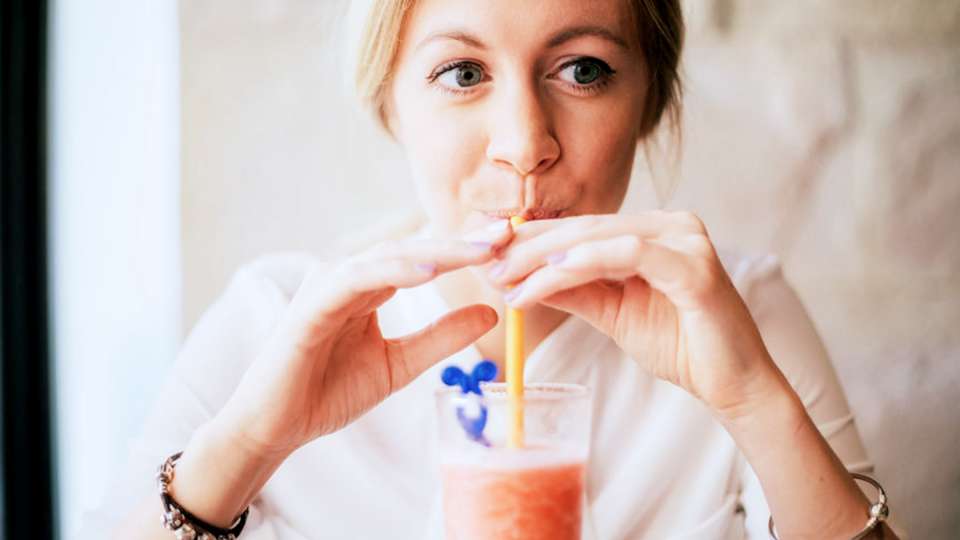
Following the latest food and diet trends is like trying to figure out which reality TV star is feuding with the next.
It’s nearly impossible to keep up.
One month, a certain diet is all the rage. The next, it’s cutting this ingredient and detoxing with that.
With so much conflicting information out there, it’s no wonder you have a hard time knowing which foods are actually good for you and which ones are not.
To help you wade through the mess of misinformation, Gaetan Habekoss, M.D., a primary care doctor at UW Neighborhood Ravenna Clinic, debunks some of the most prominent food myths out there. No “Real Housewives”-level drama required.
MYTH: Juice is healthy because it comes from fruits and veggies
Sorry, juice fans, but this one is busted. You’re better off eating an actual piece of fruit or serving of vegetables than gulping it down in beverage form.
“The main difference here is that with juice, you add a lot of calories all at once because of added sugars,” Habekoss says. “With a piece of fruit or a vegetable, you tend to feel a little fuller because there are additional healthy nutrients like fiber that you’re also ingesting.”
Take one study, for example, where participants were given either an apple, applesauce or apple juice at the beginning of a meal. Those who ate the apple reported feeling less hungry and consumed fewer calories afterward than their peers.
Another reason why juice is not as good for you as it seems? Some seemingly healthy juice beverages can contain as much added sugar as a can of soda. Yikes.
MYTH: Cutting carbs is a healthy way to lose weight
From Atkins to keto, low-carb diets have earned scads of superfans who hype these specialized eating plans for their ability to help you lose weight quickly.
Proceed with caution, Habekoss says.
“A low-carb diet doesn’t necessarily mean it’s healthy to then have a high fat intake,” he explains. “In general, I don’t recommend completely eliminating any food group or going too heavy on any one.”
Sure, you might shed pounds quickly when you first cut carbs, but eating with such strict restrictions may be hard to maintain in the long run. This often results in yo-yo dieting, which is not only disruptive to your body but also plenty discouraging if you’re trying to make a true lifestyle change.
Instead, Habekoss says, focus on eating in moderation from a variety of food groups.
And if you’re still interested in a low-carb diet, it’s important to talk with a doctor, nurse practitioner or dietitian first to ensure you’re still able to get all the nutrients your body needs.
MYTH: All fat is bad for your health
Despite what those fat-free food manufacturers would have you believe, your body needs fat in order to feel full and have enough energy to operate properly.
That said, there is a difference between healthy fats (aka polyunsaturated and monounsaturated fats) and unhealthy ones (trans fats and some saturated fats).
You get “good” fats from things like olive oil, nuts, fish and plant-based foods (hello, avocados), while not-so-good-for-you ones are often found in processed foods and animal products like red meat and butter.
“I suggest and encourage getting as many of the healthy fats as you can from plant sources,” Habekoss says. “People tend to be healthier when plant sources constitute the majority of their calorie intake.”
Wait a hot dog second. Does that mean you can only be healthy if you go vegan?
Not at all. Just be sure to enjoy that juicy cheeseburger in — you guessed it — moderation.
MYTH: Coffee is an unhealthy habit
Breathe easy, caffeine lovers. You can still love your latte and drink it, too.
“Coffee does not actually appear to be linked to any specific health problem,” Habekoss says. “The only exception is if your coffee intake is too high, you stop drinking it abruptly and then have withdrawal symptoms — like headaches — as a result of that.”
In fact, some studies suggest that coffee has major health benefits and can reduce your risk of developing type 2 diabetes, liver damage and even Alzheimer’s disease. Coffee is also ranked as the top diet-related source of antioxidants for people in the United States, Italy, Spain and Norway.
The big health concern when it comes to coffee is more about how much you’re drinking in any given day and in what form. After all, those added sugars lurking in that Insta-worthy espresso beverage aren’t exactly good for you, and neither is being overcaffeinated for the umpteenth time today.
Feel free to sip your Americano in peace — just be sure to mind your intake.
MYTH: Detox diets and cleanses help remove toxins
Not only do cleanses not work, Habekoss says, but your body already has built-in systems to rid itself of toxins: the kidneys and liver.
“There’s no evidence that detox diets or juice cleanses are beneficial,” he explains. “In fact, there is some risk with these cleanses in that they can cause electrolyte abnormalities, which can directly lead to urgent health problems.”
You have to admit, nothing ruins that juice cleanse glow like a trip to the ER.
The exception to this rule is a medically required elimination diet, when you cut out certain items like gluten — looking at you, friends with Celiac disease — or dairy for a limited period of time to help identify a potential food allergy. Anything beyond that, Habekoss says, is too extreme.
So what’s the big takeaway from all these busted diet myths?
It’s plain and simple: Ditch the food fads and focus on eating a well-balanced diet and getting plenty of exercise.

 Healthy ideas for your inbox
Healthy ideas for your inbox





